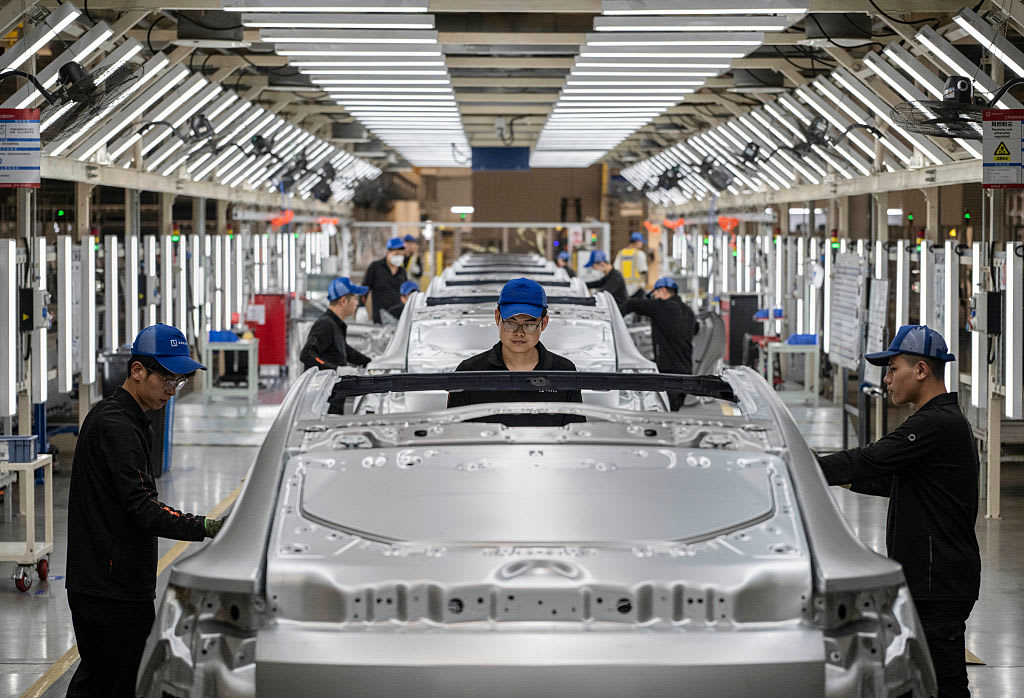3 things to know about ZTE and Huawei
The Trump administration reached a "definitive agreement" today with Chinese telecom giant ZTE that Commerce Secretary Wilbur Ross claims "imposes the most strict compliance that we've ever had on any company, American or foreign."
Penalties amounted to $1 billion, and ZTE agreed to install new management and a compliance team picked by the U.S., Ross told CNBC. But why is the U.S. government so concerned with what ZTE makes and sells?
Here are three things to know about what ZTE and a similar Chinese telecom company, Huawei.
ZTE makes more than just handsets
ZTE says it does business with telecom providers, governments and corporate network clients in more than 160 countries.
The company employs 75,000, including about 30,000 in research and development. Its R&D centers are in China, the U.S., Europe, Japan and Canada.
In 2017, sales were about $17.2 billion. Of that revenue, carrier networks accounted for 59 percent, consumer business 35 percent and government and corporate business 9 percent, the company said in its annual report.
ZTE has also been a big smartphone vendor in the U.S., with products sold by companies like AT&T (T), Verizon (VZ) and T-Mobile (TMUS).
U.S. companies Qualcomm (QCOM) and Intel (INTC) account for 43 percent of the materials used in ZTE's Chinese-made handsets and networking equipment, according to tech research firm IDC. WIthout access to these American companies, ZTE essentially can't do business.
ZTE's major markets are communications networks (which would include 5G networks now under development), IOT ("internet of things"), big data and cloud-computing products, according to the annual report.
Huawei makes networking products and telecom systems. It operates in 170 countries and employs 180,000. Among its products are 4.5G networks, wireless broadband, cloud services, data centers and banking systems. Its global smartphone market share is about 11 percent, and its total revenue was about $92 billion in 2017.
ZTE and Huawei are developing parts of 5G networks
5G, or fifth-generation, networks are expected to become critical to economic growth in part because the world is becoming more interconnected.
That includes an ever-rising number of smart devices such as self-driving cars, home appliances, emergency communication networks as well as automated and semi-automated manufacturing, energy distribution networks and utilities, like water and sewer systems.
The U.S. and China are in a race to build the first 5G network, in part because it means jobs. Building and maintaining a 5G network in the U.S. may create 3 million jobs and provide a $500 billion boost to GDP, according to a 2016 Accenture report.
Yet it might not matter if the U.S. is first, Sanjay Dhar, a managing director at Accenture who worked on the report, recently told Wired. "Even if China wins the race to build various 5G technologies, it won't be a zero-sum game," Dhar said.
The U.S. government has worried about security for years
Federal officials have long been suspicious of ZTE and Huawei, both based in Shenzhen, which is just over the border from Hong Kong. In 2012, the U.S. House Intelligence Committee said the companies posed a national security threat and advised regulators to block any of the companies' mergers or acquisitions in the U.S.
The sanctions that the Trump administration had imposed on ZTE -- and today's settlement -- reflect those longer-term concerns and highlight not just the companies' dependence on the U.S. for advanced technology but also the attraction of their less expensive mobile phones for American consumers.
Sanctions against ZTE resulted from an investigation during former President Barack Obama's tenure. They were likely made harsher by current trade tensions sparked by President Donald Trump's tariffs on steel and aluminum, as well as pending tariffs on China.
So even with today's settlement, U.S. officials remain concerned about security. "This 'deal' with #ZTE may keep them from selling to Iran and North Korea. That's good," U.S. Senator Marco Rubio, R-Florida, tweeted . "But it will do nothing to keep us safe from corporate & national security espionage. That is dangerous. Now Congress will need to act to keep America safe from #China."
In that regard, Rubio -- along with a bipartisan group of senators including Tom Cotton, R-Arkansas; Chris Van Hollen, D-Maryland; and Chuck Schumer, D-New York -- filed an amendment to the defense bill now under consideration that would prohibit the federal government from using ZTE or Huawei equipment or services "and that they receive no taxpayer dollars."
-- The Associated Press contributed to this report.



